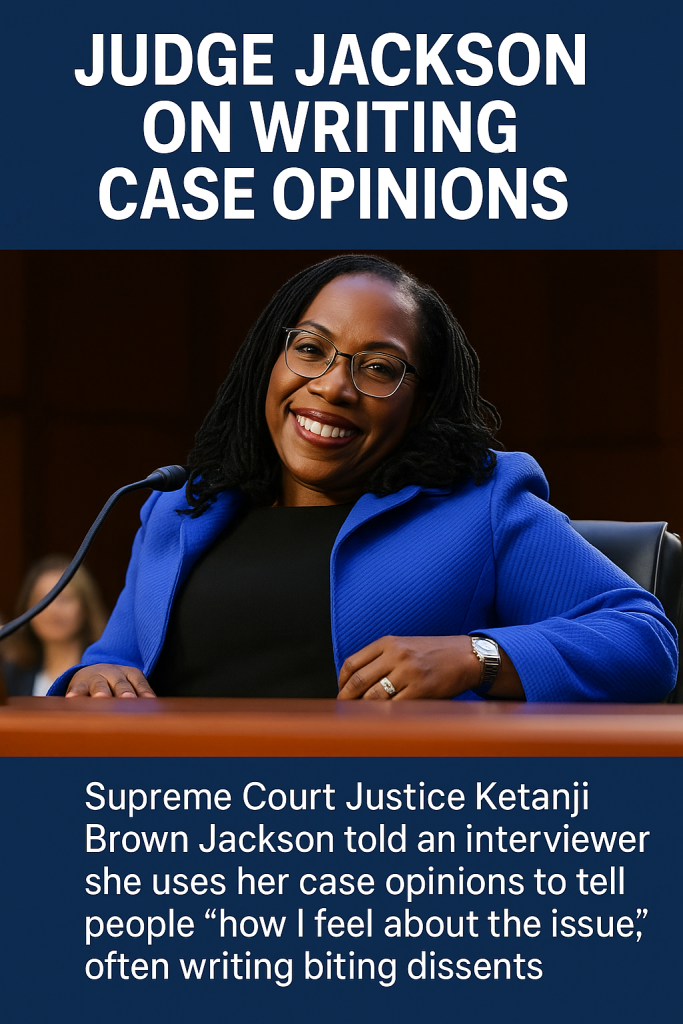Supreme Court Justice Ketanji Brown Jackson recently opened up in an interview about the role of her written opinions in conveying her personal stance on key legal issues. Known for her careful yet pointed judicial style, Justice Jackson revealed that she often utilizes her dissents not merely to disagree but to express how she truly feels about the matters before the Court.
Since joining the nation’s highest court in 2022 as its first Black female justice, Jackson has quickly developed a reputation for articulate and sometimes sharp dissents that highlight the complexity and stakes of the cases she hears. In the candid interview, she explained that crafting opinions—particularly dissenting ones—is a unique opportunity for a Supreme Court justice to communicate more than legal analysis; it’s a channel to share convictions with the public and legal community.
“When I write my opinions, especially dissenting opinions, I am telling people how I feel about the issues at hand,” she said. “It’s a moment to be clear and direct with the principles I hold and the consequences I see.”
Justice Jackson’s approach to dissent underscores the dynamic nature of judicial opinions. While majority rulings set precedent and define the law, dissents often serve as a platform to critique interpretations of the Constitution and signal alternative legal philosophies. Throughout Supreme Court history, notable dissenters have used these opinions to influence future legal thinking and societal change.
Jackson’s dissents have addressed a range of pressing topics—from voting rights and criminal justice reform to administrative law and civil liberties. Her voice frequently joins those on the Court concerned about preserving fundamental protections amid shifting political landscapes. According to observers, her opinions are marked by clarity and occasionally sharp rebukes aimed at the majority’s reasoning.
Legal experts note that Justice Jackson’s willingness to pen biting dissents reflects not only her deep legal expertise but also a commitment to judicial transparency. By openly expressing disagreement, she invites public and scholarly dialogue about the Court’s direction and interpretations. This openness can enhance public understanding of complex legal issues and reinforce the importance of a balanced judiciary.
Observers also see this communicative style as emblematic of Jackson’s broader judicial philosophy. She combines rigorous textual analysis with sensitivity to real-world impacts, often highlighting the human element behind court decisions. Her dissents frequently emphasize how rulings affect marginalized communities, showcasing her dedication to justice beyond pure legal formalism.
While dissents do not carry legal force, Justice Jackson’s thoughtfully crafted opinions resonate widely in legal circles and advocacy groups, often cited in subsequent litigation and legislative debates. By openly declaring her perspectives “through how I write the opinions,” Jackson personalizes the judicial process and demonstrates the powerful role justices play in shaping public dialogue.
As Justice Jackson continues to navigate pivotal cases in a deeply divided Court, her candid reflections on dissent signal a readiness to stand firmly by her views while engaging with the broader societal implications of the Supreme Court’s work. Her approach underscores the vital balance in the judiciary—between law and values, majority rule and minority voice.



